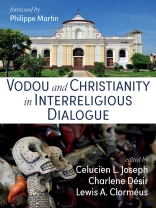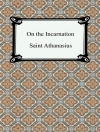Vodou and Christianity in Interreligious Dialogue addresses both historical factors and ideological issues that created antagonism and conflict between Christians and Vodouists in Haiti. The book offers practical solutions and strategies to help create a harmonious and peaceful environment between religious practitioners associated with Vodou and Christianity. Toward this goal, this volume considers various perspectives and theories, such as autobiography, anthropology, ethnographic fieldwork, religious experience, and gender to examine the subject matter. This volume offers practical examples and resources on how to engage in interreligious dialogue and promote interreligious education in Haiti.
There are three philosophical and practical ideas underlying this book project: (1) it is grounded on the belief that religion has value, and it could bring social goods to different communities and enhance human dignity and justice; (2) it is premised on the idea that dialogue and cooperation are necessary for nation-building and human development (as democratic ideals) and that one of the leading functions of the world’s religious traditions is to promote both cooperation and dialogue through mutual understanding and for the common good; and (3) that the power and public role of religion in society can be used as a major force of unification and peace-building among divergent factions and schools of thought, and to promote reconciliation, mutual respect, and friendship in the world.
عن المؤلف
Lewis A. Clorméus is a professor of sociology of religion at State University of Haiti. His most recent book is Le vodou, le prêtre et l’ethnologue : Retour sur la polémique Joseph Foisset / Jacques Roumain (Haïti, 1942) (HÉMISPHÈRES ÉDITIONS, 2021).







![غلاف Brian Schrag & Julisa Rowe: Community Arts for God's Purposes [Chinese] 貼近神心意的社群藝術 غلاف Brian Schrag & Julisa Rowe: Community Arts for God's Purposes [Chinese] 貼近神心意的社群藝術](https://static.worldofdigitals.com/thumb_webp/740/9781645083740.webp)




